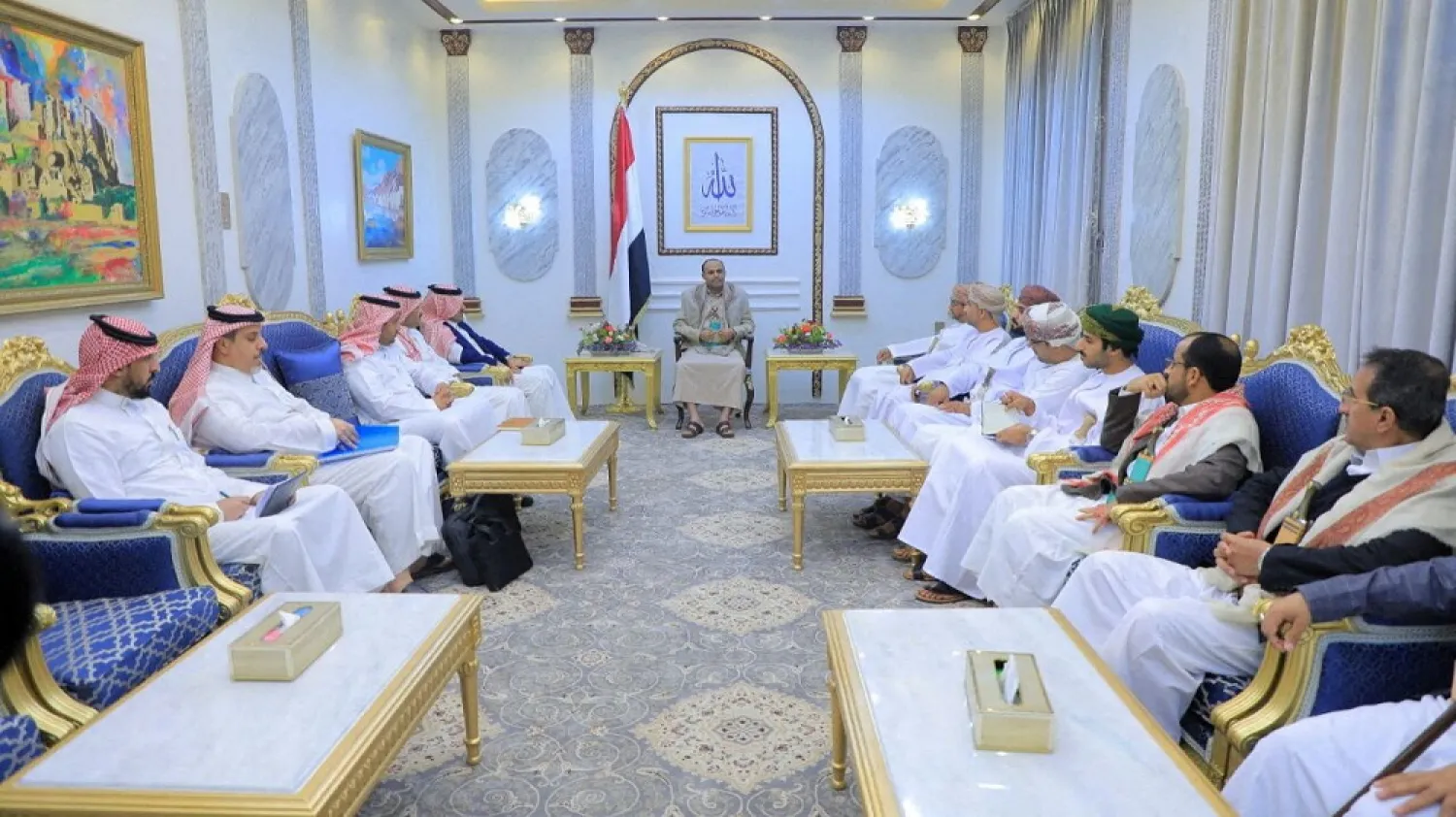The United Nations has expressed its optimism over the ongoing talks between Saudi and Omani delegations with the Iran-backed Houthi militias in Yemen’s Sanaa.
The delegations had arrived in Sanaa on Sunday to discuss a roadmap for peace in war-torn Yemen. The peace would start with an expanded nationwide truce that would include the payment of salaries, resumption of oil exports, lifting restrictions on ports and airports and kicking off steps related to peace negotiations.
Head of the Saudi delegation, the Kingdom’s Ambassador to Yemen Mohammed bin Saeed Al-Jaber said the Sanaa visit is aimed at “supporting a prisoner exchange and searching for means to hold dialogue with Yemenis in order to reach a permanent and comprehensive political solution.”
The Yemeni government announced on Tuesday that preparations are complete to hold the swap on Thursday. The process will take place over three days and cover six Saudi and Yemeni airports.
In a tweet, Al-Jaber stressed that the Kingdom had stood by the Yemeni government and people for decades and in the darkest times and throughout political and economic crises.
“Fraternal efforts have been ongoing since 2011 to meet the aspirations of the Yemeni people for security, stability and economic prosperity,” he remarked.
Meanwhile, United Nations envoy for Yemen Hans Grundberg said on Tuesday that he was encouraged by the “depth and seriousness” of talks between stakeholders in Yemen, including in a visit by Saudi and Omani delegations to Sanaa.
Grundberg said he was working with all relevant actors to ensure that current efforts are in support of the UN mediation.
“My role has consistently remained focused on resuming an inclusive, Yemeni-led political process. Only such a process can deliver a sustainable settlement and bring about a future of durable peace and development,” Grundberg said in a statement sent to Reuters.
Spokesman for the UN Secretary-General Stephane Dujarric had this week expressed optimism over the discussions in Sanaa.
“We are not involved in every discussion, we don’t need to be”, he said. “What is important is that all of these parties work towards the relevant Security Council resolution, the UN facilitated talks.”
Dujarric said the discussions in Sanaa were “very much welcomed by the Secretary-General” and added that Grundberg continues to be “in close coordination with the regional member states” over resuming the political process, with the hope of avoiding any escalation in the war.
He hoped that the Sanaa talks would help ease tensions in Yemen and the region and pave the way for comprehensive peace.
Yemenis remain apprehensive of the Houthis and their maneuvers that have thwarted peace efforts in the past, and yet, they are hoping that the latest talks would lead to a UN-sponsored intra-Yemeni roadmap that would put an end to the conflict.
Separately, the government confirmed that a prisoner exchange would kick off on Thursday after arrangements were complete.
Member of the government negotiations committee and deputy minister for human rights Majed Fadail said the swap would take place in three phases over three days.
The International Committee of the Red Cross will operate flights from the Sanaa and Aden provinces on the first day, followed by flights from Sanaa to Saudi Arabia’s Riyadh and Abha, and later al-Mokha in Yemen’s Taiz to Sanaa and then from Sanaa to al-Mokha on the second day.
The third day will witness three flights between Marib and Sanaa.
The swap, which will include 887 government- and Houthi-held prisoners and detainees, was due to be held earlier but was postponed for three days to complete preparations.









